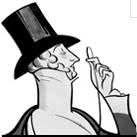 Hurricane Katrina survivors_Aug. 05
Hurricane Katrina survivors_Aug. 05(nationalgeographic.com)
My White Privilege by Naomi Klein
NOW Magazine - Dec. 06
(Excerpt)
I get sent to a ritzy hospital with no patients while poor New Orleans is left to die
I was in New Orleans during the flood with Avi Lewis, my husband, and my friend Andrew Stern. We were driving in a rental car, and we kept getting lost because all the streets were flooded. Andy started thinking he was in a video game, a post-apocalyptic environment, weaving the car around the debris. Then we realized it was five minutes to 6, and 6 o'clock was curfew.
We got into a collision. We spun out and drove right through the stoplight, which wasn't working because there was no electricity. We went through a wrought iron gate and landed in an independent coffee store, kitty-corner to a Starbucks. And someone said, "Did you want to hit the Starbucks?"
The other car was a cop car, and that's how we found out we were in the South. Andy was arrested, Avi was face down on the ground, being warned what happens when you hit a cop in the state of Louisiana.
I was strapped to a gurney in an ambulance, trying to convince the driver to please not take me to a hospital, because I'd been watching the news and seeing these images of what hospitals were like during the flood.
Charity Hospital had no electricity, and incredibly courageous health care workers were trying to keep their patients alive, watching helicopters airlift everybody but them. It's the only hospital that provides emergency services to the poor in New Orleans - or provided. They haven't reopened Charity Hospital, along with many public schools.
I'd seen the awful images and actually gone to one of these clinics where it was like Dante's Inferno, with elderly people falling out of wheelchairs and no one helping them. I was terrified about where they were going to take me.
So I was negotiating with the ambulance driver. I had a concussion and kept slipping in and out of consciousness. "Just drop me off at a corner - you know, I'll walk. No problem."
The next thing I knew, I was at, from what I could tell, a spa. Called the Ochsner Hospital, it's apparently quite a famous private hospital. That's where they decided to take us because we're white. I was in a private room in three minutes flat.
I was cared for by three nurses, a senior doctor and a medical intern. I have never in my life received such attentive care, nor have I seen anyone in my family get such attentive health care. This was in the middle of the largest natural and humanitarian disaster in American history.
The doctors were playing cards in the middle of this hospital, protected by an army of private security who were there, as they said, to keep the junkies out. I couldn't get out because it was past curfew, so after I got a few stitches I tried to interview the staff. I asked my intern, this young guy in his 20s, if he worked the hurricane, and he said, "No, thank god, I wasn't on duty. I actually live in the suburbs."
"Did you go to any of the shelters?" I wasn't trying to be a bitch, I just assumed that someone who'd just learned how to be a doctor would want to help.
He looked at me, confused. It actually hadn't even occurred to him to go to one of the shelters. Just as it hadn't occurred to any of the doctors and nurses in the hospital that, instead of staying in their fortress, dealing with three or four patients, they could be out there.
What we saw with Katrina was an apartheid state where the wealthy unite, where those with credit cards got into cars, drove and checked themselves into motels. This is a two-tier system. They had already accepted the idea that some lives are worth more. And once you do that in your health care system, you are mentally prepared to do that in a major disaster.
It's a heardening of hearts that's required on a daily basis to run a luxury hospital in a city like New Orleans. It's the same heardening of hearts that let people be abandoned on their rooftops by their country.






